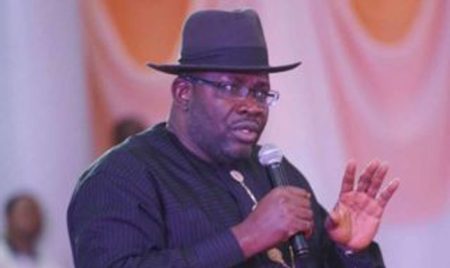Paragraph 1: Triumph at the Supreme Court
The Supreme Court of Nigeria has affirmed Governor Godwin Obaseki of Edo State as the duly elected governor, dismissing the appeal challenging his victory in the 2020 governorship election. This decision, delivered on Thursday, marks a significant legal and political victory for Obaseki and the Peoples Democratic Party (PDP). The apex court’s ruling underscores the sanctity of the electoral process and reinforces the judiciary’s role as the final arbiter of justice in Nigeria. The dismissed appeal, filed by the All Progressives Congress (APC) candidate, Pastor Osagie Ize-Iyamu, contested the outcome of the election based on allegations of irregularities. However, the Supreme Court, after reviewing the evidence and legal arguments, found the appeal lacking merit, thus upholding Obaseki’s mandate.
Paragraph 2: Reaffirming Democratic Principles
The Supreme Court’s affirmation of Governor Obaseki’s election is not just a victory for an individual or a political party; it is a triumph for democracy itself. It reinforces the principle that the will of the people, expressed through the ballot box, should be respected and upheld. This decision sends a clear message that electoral disputes should be resolved through legal channels, fostering confidence in the judiciary’s impartiality and its commitment to upholding the rule of law. The Supreme Court’s consistent stance on electoral matters strengthens Nigeria’s democratic institutions and promotes peaceful transitions of power.
Paragraph 3: Edo State’s Path Forward
With the legal challenges to his election now resolved, Governor Obaseki can fully focus on governing Edo State and fulfilling his electoral promises to the people. The governor’s agenda likely includes priorities such as economic development, job creation, infrastructure improvements, education reforms, and healthcare enhancements. The Supreme Court’s decision provides a stable political environment for the governor to pursue these goals without the distractions of protracted legal battles. The people of Edo State can now look forward to a period of focused governance and progress.
Paragraph 4: National Implications and the Judiciary’s Role
The Supreme Court’s ruling in the Edo governorship election case has broader implications for Nigeria’s political landscape. It emphasizes the importance of conducting credible elections and resolving disputes through legal means. This reinforces public trust in the judiciary as an impartial arbiter of justice. The Supreme Court’s consistent and principled approach to electoral disputes contributes to the strengthening of democratic institutions and the rule of law nationwide.
Paragraph 5: The Political Landscape of Edo State
Governor Obaseki’s affirmed victory solidifies the PDP’s hold on Edo State’s governorship. This outcome has significant implications for the political dynamics within the state and its relationship with the federal government, which is currently under the control of the APC. The governor’s focus will likely shift towards implementing his development agenda and consolidating his political base, while navigating the complexities of inter-party relations. The political landscape of Edo State will continue to evolve as the various political actors adjust to the post-election realities.
Paragraph 6: Looking Ahead: Governance and Development
The resolution of the governorship election dispute allows Edo State to move forward and concentrate on governance and development. Governor Obaseki’s administration can now dedicate its full attention to addressing the needs of the people and fulfilling the promises made during the election campaign. The focus will likely be on improving the lives of Edo State residents through various programs and initiatives aimed at economic growth, social development, and good governance. The coming years will be crucial for Governor Obaseki to demonstrate his leadership and deliver tangible results for the people of Edo State.














